The Great Relocation: Why Aussies are fleeing in the thousands
People have been rethinking what they want from life after Covid and making big moves, with many willing to take a 20 per cent pay cut to make it happen.
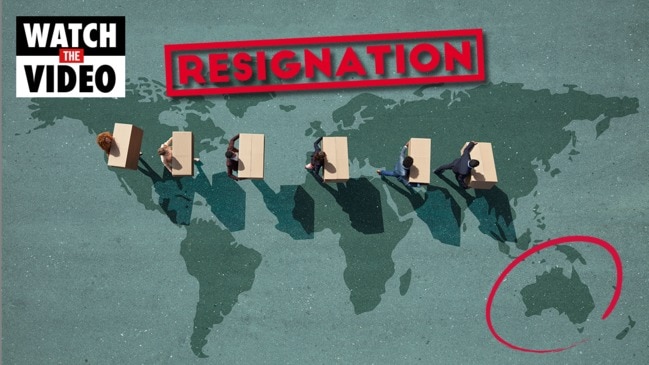
Phil King, his wife and two kids fled more than 200 days in lockdown in Melbourne, moving the family to Bali in July this year and while he happily kept his job, he admits he would have left it if he wasn't offered that type of flexibility.
The VP of supply chain at sustainable toilet paper maker, Who Gives a Crap, Mr King said the family had dreamt of sending their children to a school in the jungle based in Bali.
It’s made entirely out of bamboo and offered an innovative curriculum including scuba diving and foraging for fruit that could “help the kids be creative problem solvers for the future of the planet”, he said.
But it wasn’t until the pandemic started to bite and they endured numerous lockdowns that the family decided to make what had essentially been a fantasy into a reality.
“We had a travel itch to scratch as well and I think the Covid lockdowns really triggered it and really drove that desire more than normal, not being able to do that,” he told news.com.au.
“And actually normally we are travelling a lot through work both of us so we had a real travel itch and wanted to live overseas again, so for us it was a strong pull.”
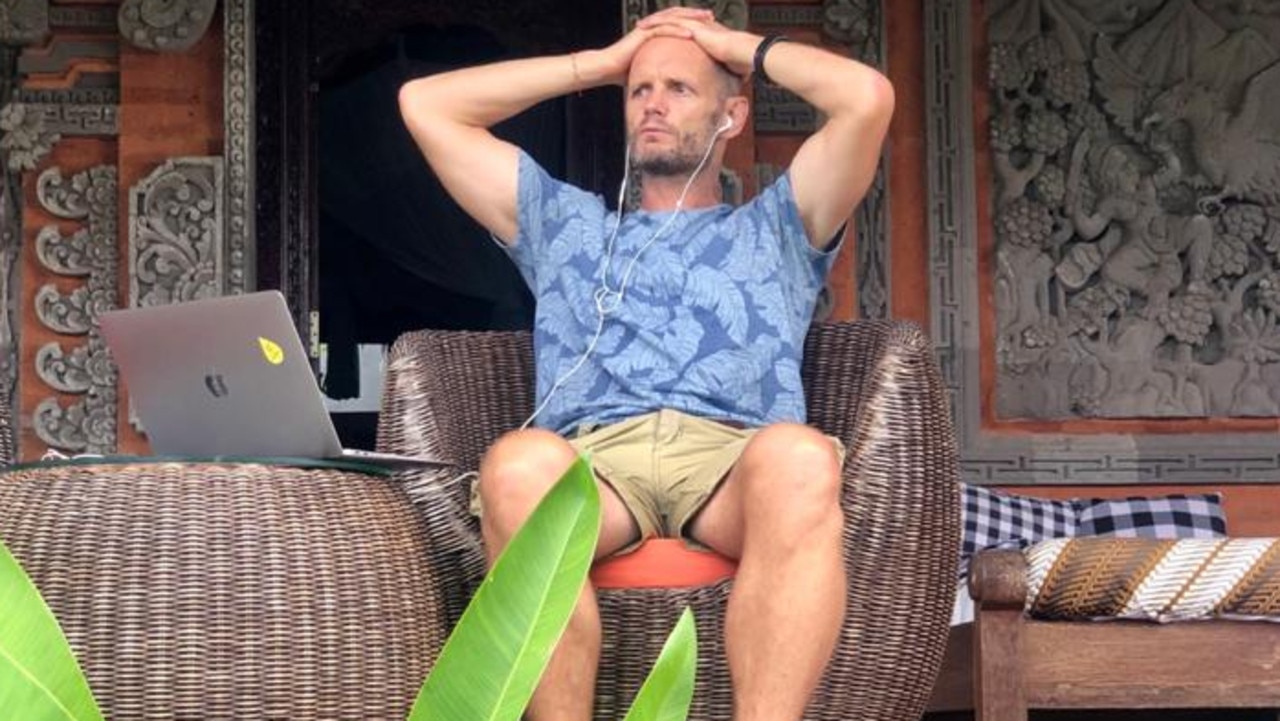

The 46-year-old said when he approached his CEO about the idea he was supportive and in fact moving his job to Bali was the easy part – it was trying to escape Australia by applying for travel exemptions for the family that was a “massive” headache.
“I was a tiny bit worried about whether people might question whether they could get the same level of support from me but I was completely overwhelmed by the support,” Mr King added. “
“At my Zoom leaving party, I did a video about the reason for leaving and the response was heartwarming. Everyone said we wish we could come with you and there was no sentiment about how is this going to work for the rest of us – there wasn’t an ounce of that.”
Mr King is part of the pandemic-induced phenomenon called The Great Relocation, which has seen Aussies flee major cities, for places that offer a nicer lifestyle and ways of living, rather than being crammed into tiny places or paying exorbitant rent or mortgages.
They are prepared to take their job or leave it too, with a pay cut on the cards for people to find that lifestyle and flexibility in their job.

Dr Ben Hamer, Future of Work Lead at PricewaterhouseCoopers (PwC) Australia, said housing affordability and a switch to remote working means people are looking to live further out from the big cities.
He said PwC research showed that 74 per cent of Australians want to work a hybrid model with some days at home and others in the office, while 18 per cent want to work full time remotely.
Mr Hamer warned that if companies don’t continue offering flexible work options than they will lose staff and that money is no longer a big drawcard for most.
“What we have seen and experienced over the last 12 to 18 months is employees have been trusted to work from home and not have someone looking over their shoulder and so if employers are trying to throw flexibility away, it’s quite jarring and people are revolting,” he told news.com.au.
“Some organisations in the US mandated return to work three days a week and there were massive spikes in resignations.
“Employees are willing to sacrifice up to a 20 per cent pay to retain flexibility over where they work and when they work.
“It’s important to organisations when it comes to The Great Resignation that they can throw money at people to try and attract and retain people but flexibility will be a differentiator when it comes to keeping talent.”

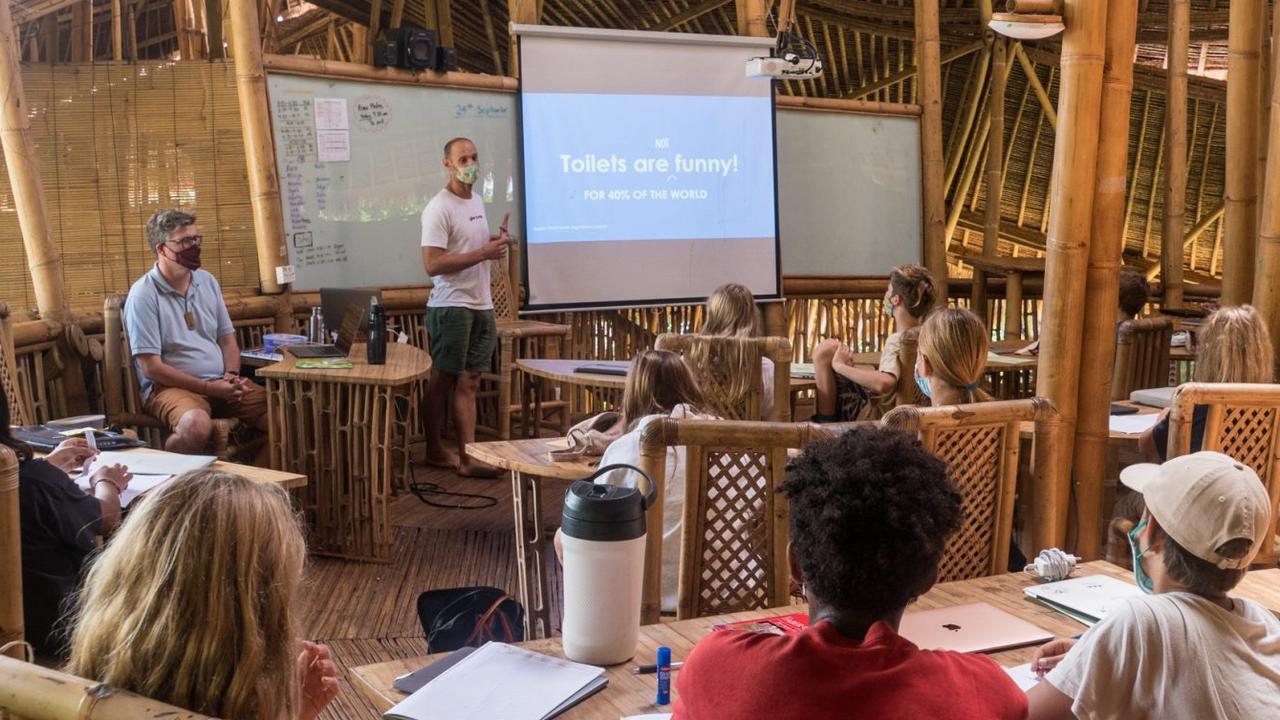
The biggest change workwise for Mr King has been keeping his Australian hours, which often means a 5am start, but he describes the move as magical in terms of the lifestyle change.
“It’s been incredible the experience of a completely different way of life for all of us. It has been really life enhancing, it’s been a complete shift from the world of Covid, especially in Melbourne where people have done it tough,” he said.
“I tend to describe it as during working hours it feels the same to me but the second I step away from my work I’m in this incredible tropical world of adventure and opportunity and Bali has a certain opportunity to it.
“We have explored at the weekends, done incredible things as a family and those opportunities have fuelled my general energy and sense of wellbeing and happiness and that fuels back into work.”
Mr King added he’s not the only employee to take up the companies’ flexible working policy. One staff member has moved to Ireland as part of a lifestyle move while his partner trains to become a doctor, another moved away from their LA hub, while there were also local relocations like to the Sunshine Coast.
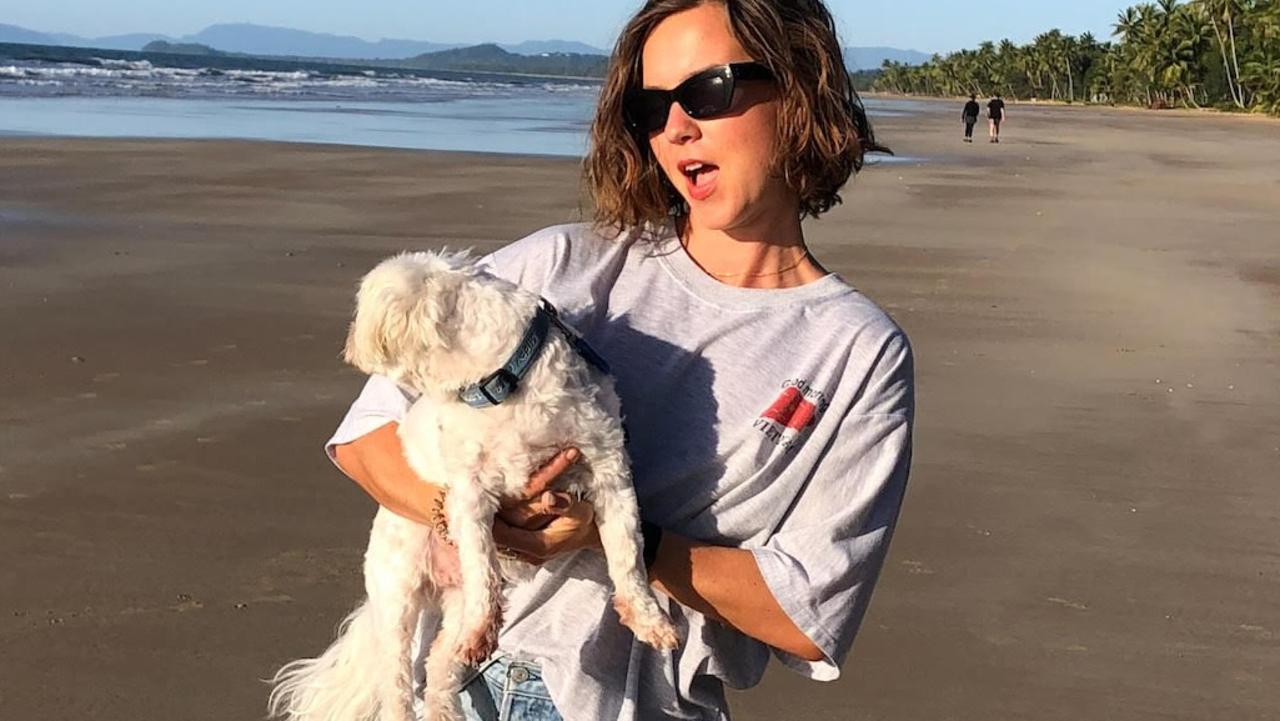
While overseas moves may have been less common among Aussies, migration from capital cities to regional Australia has been at record levels during the pandemic, with southeast Queensland, Geelong in Victoria and Wollongong in New South Wales experiencing some of the biggest growth.
Katie Tracey was one of those people. The 30-year-old escaped to Cairns in July this year from Melbourne after watching the brutal impact of the pandemic on the hospitality industry, a career she had spent 13 years in, as well as going through a long-term relationship break up.
She had gone for a holiday to Cairns in June and the seed for moving was planted.
“I thought why spend my time here in Melbourne where it’s miserable and cold and we are in and out of lockdowns? So I made the decision and went back to Melbourne and within a week had all my stuff packed in a storage box and I got on a plane and freighted my car up and moved to Cairns,” Ms Tracey said.
“It all happened very quickly. I didn’t even have enough time to say goodbye to everyone.”

It also prompted a career change where she scored her first 9-to-5 office job ever and she has no regrets about leaving hospitality wanting to get out of the boozy, late night lifestyle it encouraged.
“I’m glad I left it. I’ve (been) watching everyone I know in the hospitality industry with all the restrictions and having to please people and essentially be on frontline of Covid – that was not something I want to do with turning people away with vaccination statuses and copping abuse, that’s not what I signed up for,” Ms Tracey said.
She said the change had turned her from a night owl to an early morning riser, while she had the added bonus of living in a three-bedroom house and paying just $800 a month in rent.
“I’m discovering waterfall sand going on road trips to Mission Beach and going to the beach and a lot more things are based around on seeing nature and camping and stuff like that and being more active on the weekends because I’m not hungover from going out on Brunswick Street,” she said.
“It’s nice as you’ve got literally rainforests right next to your house and nice big hikes and 20 different waterfalls next to my house and I’m definitely embracing all that side as you don’t get that in Melbourne as well.”

She now works as an executive assistant for Mihaven, a social enterprise that specialises in property construction and development.
“My real passion is sustainability and it’s cool with my role as from a social impact perspective company, they are building specialist disability accommodation and it’s peaked my interest and I’ve become a bit of a sustainability mascot for the office,” she said.
“When I moved up thought I would come up for a few months but it’s really turning out to that it could be long term … and there’s room to grow in the role and for it to change.”
Behavioural scientist Aaron McEwan from global research and advisory firm Gartner agrees The Great Relocation is at the heart of the The Great Resignation, the phenomenon hitting the US where millions of people are quitting their jobs each month.
The Great Resignation is expected to bite in Australia come March next year, but Mr McEwan said both trends are intertwined as its about people reassessing their values, what they want out of life and forcing work down the priority list.
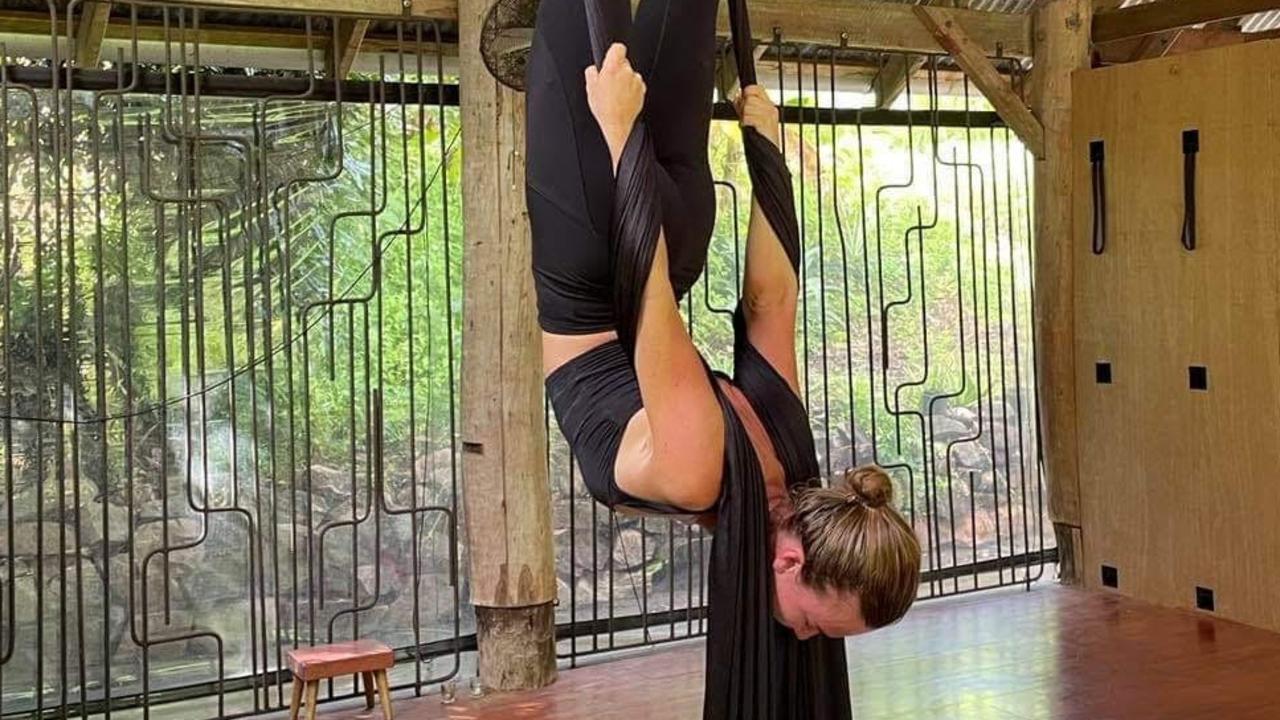
He said Gartner’s research showed that around 87 per cent of employees were expecting more flexibility from their company post pandemic and part of this is making broader choices about where they live.
“Here in Australia with lots of movement in talent already, employees don’t want to be seen as workers anymore, they want to be seen as human beings … One of the obvious things is they want more flexibility and more autonomy over where they work, how they work, who they work with and what they work on and it’s coming through with all relocation trends that we are seeing,” he said.
“But it’s also about recognising that as human beings they have important relationships so the most obvious one is with family, so a lot of is driven by the desire for flexibility so they can prioritise family more and also about friends and social networks and hobbies … People want to bring their whole self to work.
“But at the same time they are also trying to protect this very blurry work life balance that has become so convoluted and we are starting to see evidence of employees wanting to protect their home time and try to protect some of the relationships and preventing work encroaching too much into that as well.”
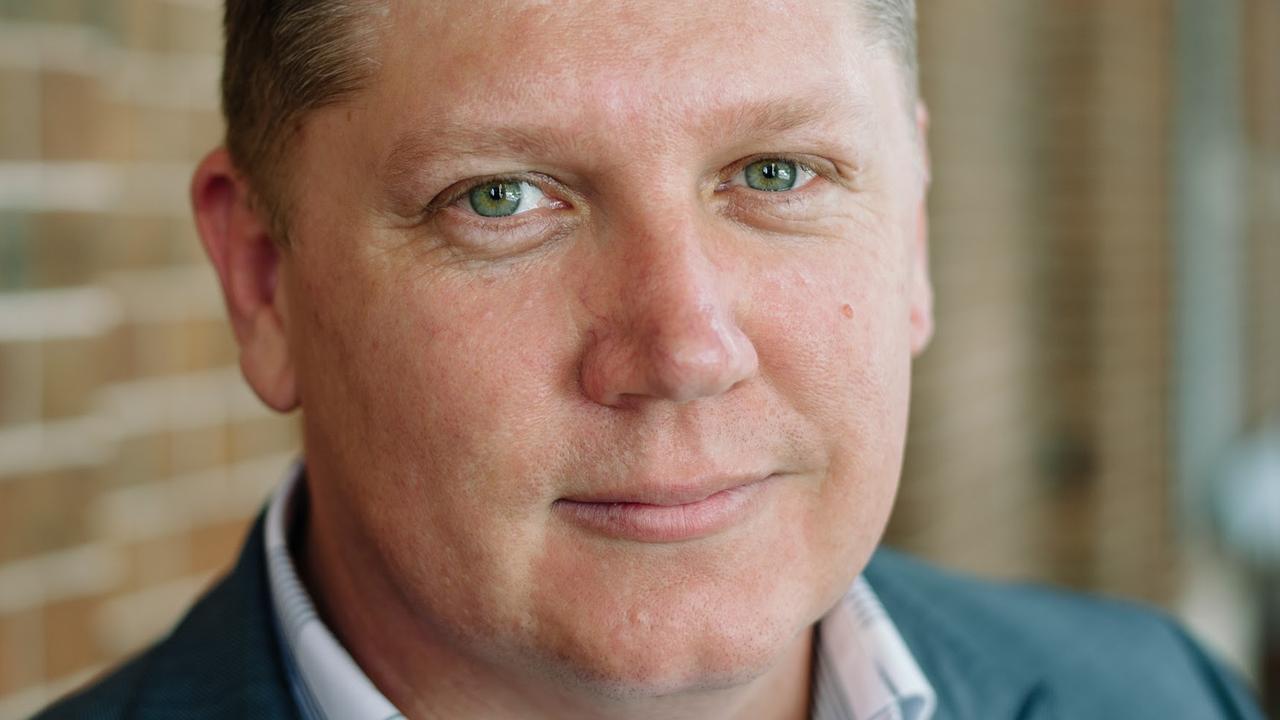
Mr King said the philosophy and culture of Who Gives a Crap was about bringing your whole self to work, an idea that may be novel for many other Aussie employers.
“My whole self is I’m a partner, dad and a traveller and adventurer. I seek adventure and that’s my whole self and by accommodating this move I really am being my whole self and I’m bringing that to work,” he noted.
“And there’s advantage in how I show up to work and the energy I can bring … The environment, it’s hugely impacted my overall happiness and I think that overall hugely impacts work.”
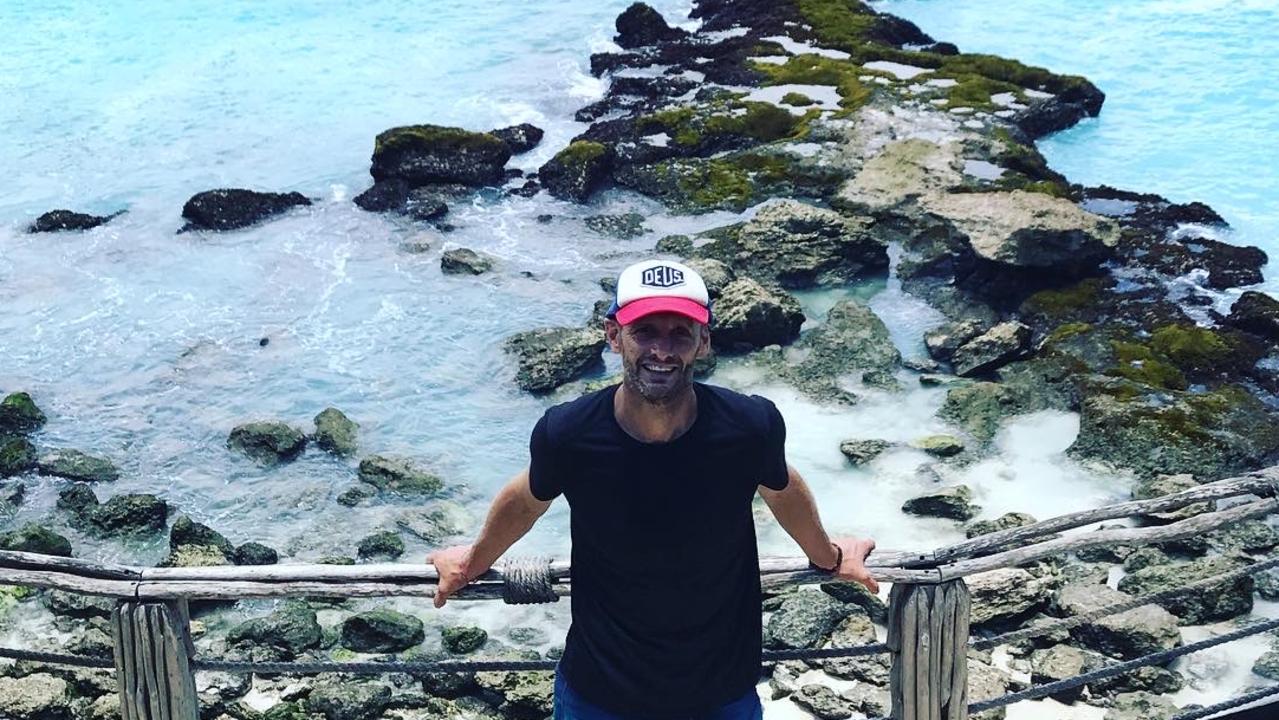

Another obvious part of The Great Relocation is a sea change or tree change allows people much more space, Mr McEwan added.
“Why live in two bedroom fixer upper in the inner west of Sydney and when you can do a sea change move down to coast and have move space?” he said.
“As the shift to remote work and hybrid work is a more permanent thing, the first thing people are doing is looking for more space.”






